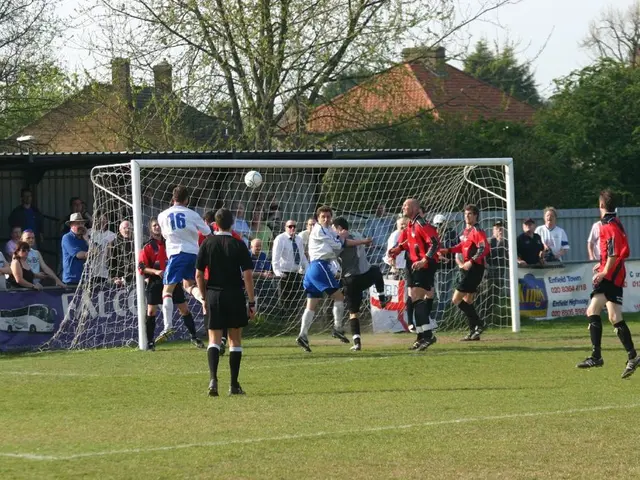International capitals escalate diplomatic pressure towards Iran: Berlin, London, and Paris intensify their efforts to influence Iranian policies.
In a move that could potentially escalate regional tensions, France, Germany, and the UK have announced their readiness to trigger the snapback mechanism to reimpose UN sanctions on Iran, should the country fail to resume nuclear negotiations and curb its uranium enrichment activities by the end of August[1]. This decision comes in response to Iran's continued defiance of the 2015 nuclear accord, which aimed to prevent Iran from developing a nuclear bomb[2].
Iran has firmly rejected Europe's authority to trigger or extend the snapback sanctions mechanism, calling the 2015 deal defunct and denying Europe’s right to enforce or extend deadlines[2]. This rejection is a stark contrast to the diplomatic stance of the European countries, who have reaffirmed their commitment to a peaceful resolution to the crisis caused by Iran's nuclear program[3].
The US, under the administration of former President Trump, had previously withdrawn from the nuclear deal in 2018 and imposed massive sanctions on Iran. This move was followed by Israel's major attack on Iran in June, which targeted nuclear and military facilities[4]. Israel's stated goal was to prevent Iran from building a nuclear bomb[5].
In response to these actions and the subsequent sanctions, Iran has gradually withdrawn from its commitments under the deal and increased uranium enrichment[6]. The US, now represented by Trump’s envoy, is pushing for the complete dismantlement of Iran’s nuclear program, viewing any incremental or old-style diplomacy as ineffective post recent military actions against Iran’s nuclear infrastructure[3].
Negotiation efforts are reportedly underway, with a potential new round of talks prepared by a U.S. special envoy, possibly joined by France, Germany, and the UK[3]. The aim is to prevent the snapback sanctions by offering Iran an opportunity to reengage under stricter terms. However, if a solution is not reached by the end of August, the likely consequence is the reactivation of sweeping international sanctions through the snapback mechanism, which were lifted under the 2015 nuclear accord[1][2]. This would significantly increase international pressure on Iran, potentially further deteriorating diplomatic relations.
In summary, the standoff between Europe and Iran over Iran's nuclear program is intensifying, with both sides hardening their positions. The snapback mechanism, which allows for the reinstatement of sanctions against Iran, is at the centre of this diplomatic crisis. The coming weeks will be crucial in determining whether a peaceful resolution can be found or if the region will be plunged into further turmoil.
References:
- Reuters
- Al Jazeera
- CNN
- BBC News
- CBS News
- NPR
Read also:
- Massive 8.8 earthquake hits off the coast of Russia's Kamchatka Peninsula, prompting Japan to issue a tsunami alert.
- Court petitions to reverse established decision on same-sex marriage legalization
- Proposed Standardization of Food Labeling Laws Among Member States by the Commission
- Current News: AfD Achieves 26% - Union Dips to Laschet's Level







